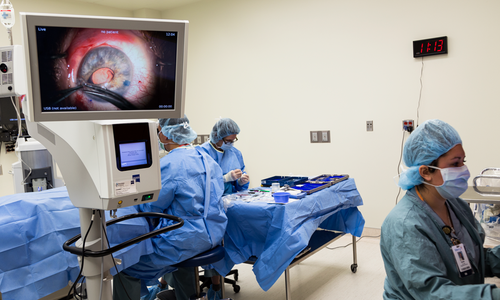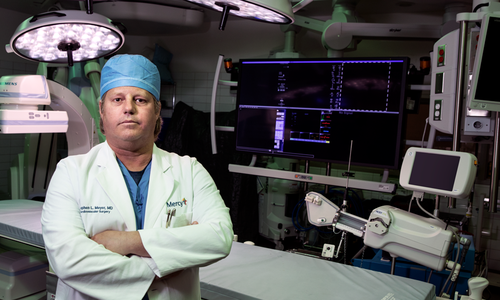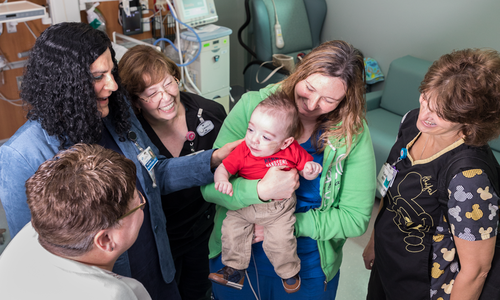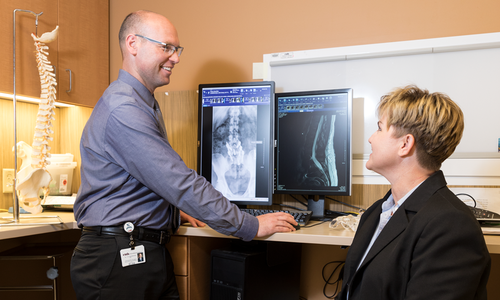Top Doctors
Dr. Leslie Hamlett Saved Greg Dagnan's Life
On the brink of kidney failure, Greg Dagnan went to Dr. Leslie Hamlett at Freeman Kidney Center for help. She treated him through his sickest days and saved his life.
By Rose Marthis
May 2017

By the time Greg Dagnan went in for a kidney transplant, his kidneys were at 3 percent function. His doctor, Dr. Leslie Hamlett at Freeman Kidney Center in Joplin, immediately left the room to call Barnes-Jewish Hospital in St. Louis. Dagnan received a new kidney on July 29, 2010. But his story begins long before that.
Dagnan grew up watching many people in his family, including his mother, suffer from polycystic kidney disease. He was tested for the hereditary disease in his youth and was told it was unlikely he would have it. In his 30s, Dagnan was teaching full time at Missouri Southern State University when he started having odd symptoms. He contracted gout. He suffered from fatigue. He went to the emergency room for a kidney stone, and that’s when he discovered his kidneys were in bad shape.
Dagnan started seeing Hamlett and was one of her first patients in 2008. At that time, his kidneys were between 50 and 60 percent function, but he was only getting sicker. He went in to see Hamlett every quarter, and every quarter his function percentage was lower and lower. Dagnan had become the Chief of Police for the Carthage Police Department, so he was working as much as he could and trying to hide his illness. But Hamlett knew he needed to get on the list for a transplant, and soon.
The search began for a donor match. Everyone in Dagnan’s immediate family wasn’t a match, so the search had to expand. “From my perspective, I didn’t want anyone to give me an organ,” he says. “I’m the guy that helps people. But my wife was handing out cards to everyone we saw with a number to call to see if you were a donor match. Barnes-Jewish called me and said, ‘Enough! We’ve tested 13 people; one has to be a match.’” Dagnan was at home catching up on emails when he saw one from Tricia Wadell, a former student of his. She was working for the Kansas City Police Department, heard about Dagnan’s situation and went to Barnes-Jewish to get tested. She was the perfect match. Dagnan was hesitant at first. “She’s just starting her career—she’s going to be gone too long,” he thought. “I told her no. But she said, ‘I’m not giving you the option.’” Dagnan and Wadell both had successful procedures.
Now, seven years after the surgery, Dagnan considers both Wadell and Hamlett members of the family. “In 27 years of law enforcement plus this illness, I’ve been around a lot of doctors,” Dagnan says. “Medical care with her is by far the best I’ve ever received. It’s always clear to me that she is an incredibly caring person.” Hamlett feels the same. “I’ve taken care of him for the last nine years,” she says. “I’ve seen the lowest points and highest points. My favorite part of my job is the relationships I develop with patients and their families. A patient can come in with a threat of dying, and I can immediately save their life.”












